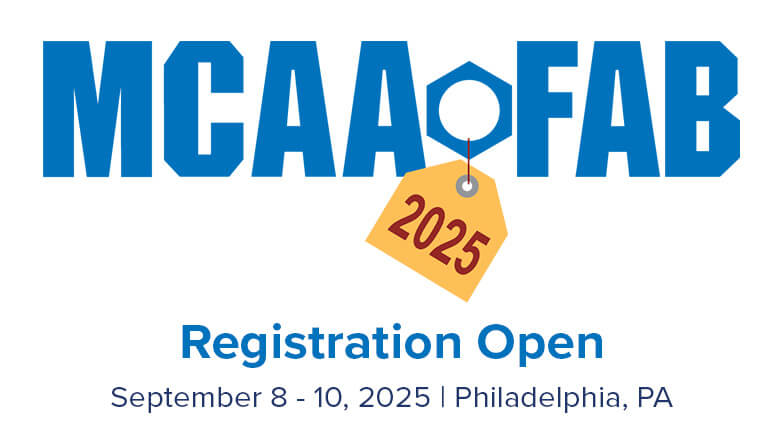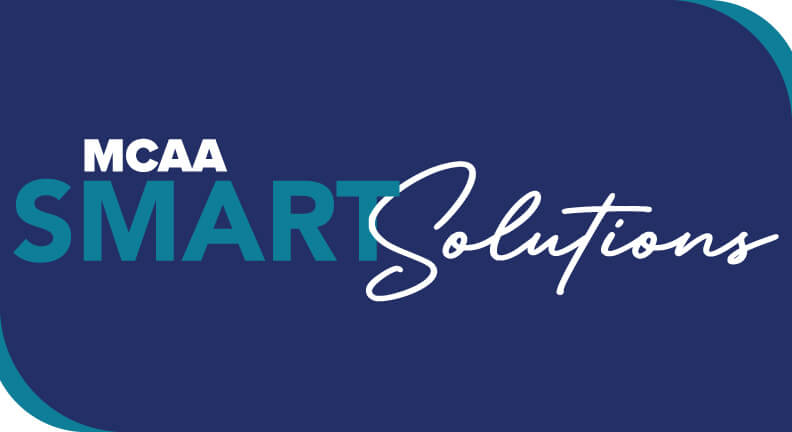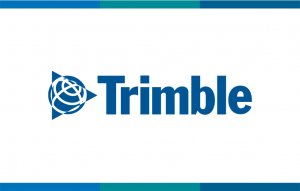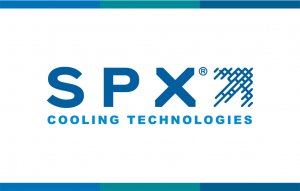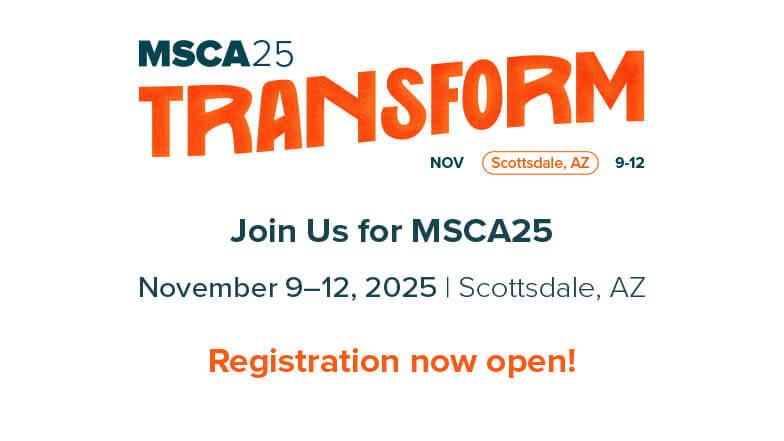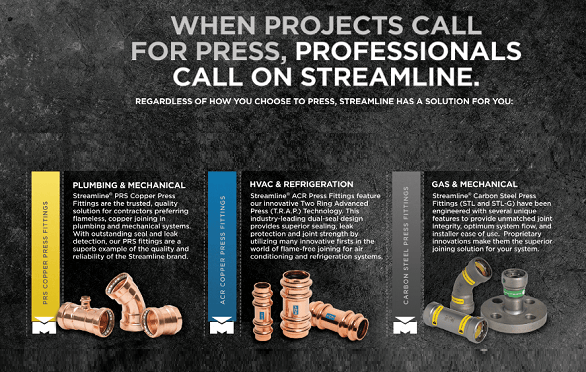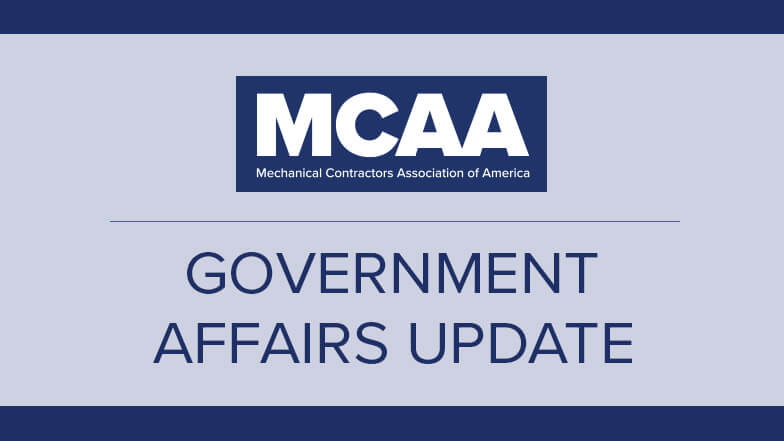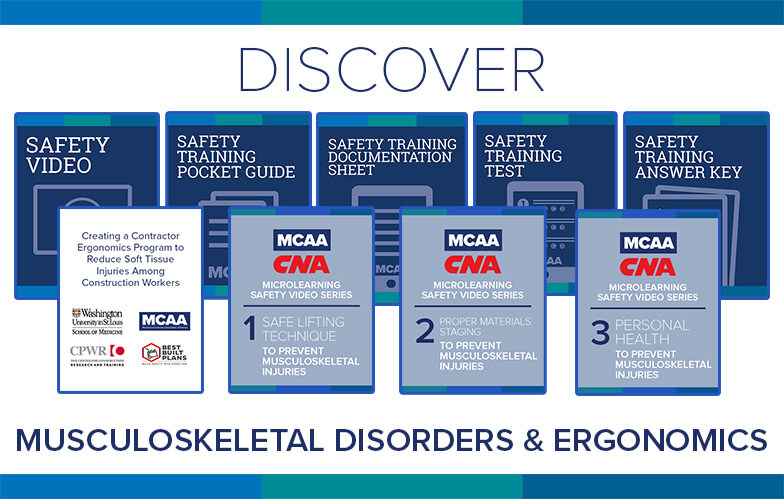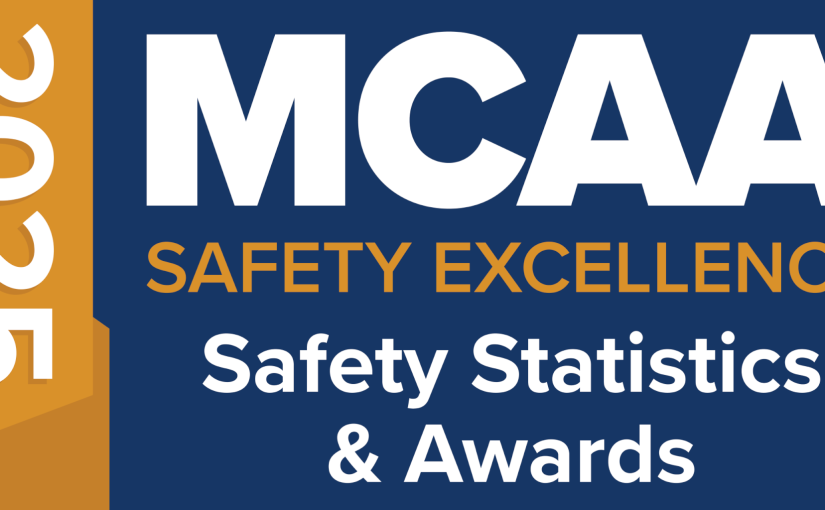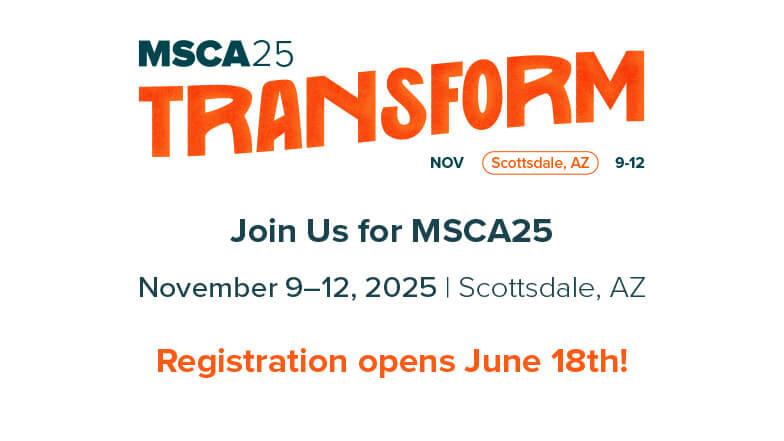As part of its ongoing commitment to protecting your livelihood and setting the stage for a bright future, MCAA has secured the services of Longbow Public Policy Group to advise our MCAA Government Affairs Committee (GAC). GAC Chair, Jim Gaffney will be passing along information relative to our industry on a regular basis.
On Monday, June 16, 2025 MCAA Lobbying Firm, Longbow Public Policy Group provided the following information:
Trump Administration
President Trump Announces China Trade Deal as Federal Court Allows His “Liberation Day” Tariffs to Remain in Effect Pending Litigation
Last Wednesday, President Trump said that the U.S. trade deal with China is done and that the baseline American tariff on Chinese goods will be 55% and Chinese tariffs on American goods will be set at 10%. The President said China agreed to supply rare earth elements “up front” and that the U.S. will allow Chinese students in its colleges and universities. Notably, China is keeping the pressure on the U.S. by limiting its authorizations to export rare earth minerals to the U.S. to six months. Trump said the deal is subject to final approval by him and Chinese President Xi Jinping. The announcement followed a decision by the U.S. Court of Appeals for the Federal Circuit last Tuesday allowing President Trump’s April “Liberation Day” tariffs to remain in effect while the court reviews a lower court decision blocking them on grounds that he had exceeded his authority under the International Emergency Economic Powers Act (IEEPA). While the litigation over the “Liberation Day” tariffs plays out, some industry groups are weighing litigation against President Trump’s recent move to increase tariffs on steel, aluminum, and automobile parts to 50% that relied on the President’s separate section 232 authority. These tariffs were based on findings from section 232 tariff investigations conducted during President Trump’s first term and some industry groups are contemplating a challenge arguing that the data is too stale to justify the increased tariffs.
PHMSA Seeks Feedback on Pipeline Safety and Hazardous Materials Regulations
Among the many regulatory developments of the last two weeks, we wanted to be sure that you were aware that on June 4th, the Pipeline and Hazardous Materials Safety Administration (PHMSA) published two advance notices of proposed rulemaking (ANPRM) regarding reviews of the Pipeline Safety and Hazardous Materials regulations “to eliminate undue burdens on the identification, development, and use of domestic energy resources and to improve government efficiency.” PHMSA issued these ANPRMs in response to President Trump’s Executive Orders on “Unleashing American Energy”, “Declaring a National Energy Emergency”, and “Unleashing Prosperity Through Deregulation.”
With regard to pipeline safety, PHMSA is seeking feedback on whether: (1) it should consider incorporating within its Pipeline Safety Regulation (PSR) an explicit requirement to conduct retrospective regulatory reviews at specified intervals to eliminate undue burdens and improve government efficiency; (2) PHMSA’s regulations, implementing guidance, or practices governing special permits impose an undue burden on affected stakeholders; and (3) there are any consensus industry standards or recommended practices that should be incorporated by reference into the PSR to eliminate undue burdens or improve government efficiency. Comments on both ANPRMs are due by August 4, 2025 and can be submitted through the federal eRulemaking portal using Docket No. PHMSA-2025-0050 (for Pipeline Safety) and Docket No. PHMSA-2025-0032 (for Hazardous Materials).
Federal Agencies Release Fiscal Year 2026 Budget Details
On May 31st, federal agencies released additional details on their individual funding requests for fiscal year 2026. The requests of particular interest to the MCAA are as follows:
Department of Labor (DOL)
The Labor Department’s fiscal year (FY) 2026 “Budget in Brief” requests a $5.3 billion cut for the department from the $13.9 billion FY2025 enacted level and a cut of 4,006 personnel from the FY2025 enacted level. At the Employment and Training Administration, the budget proposes to consolidate DOL workforce development programs into a single $3 billion “Make America Skilled Again” grant program, including grants for: (1) Apprenticeship; (2) WIOA Adult, Dislocated Worker, and Youth Grants; (3) YouthBuild; (4) Dislocated Worker National Reserve, including Strengthening Community Colleges and Workforce Opportunity for Rural Communities Grants; and (5) the National Farmworkers Jobs Program. The budget also proposes the elimination of the Job Corps program.
At the Wage and Hour Division (WHD), the budget proposes 906 full-time employees, a reduction of 245 staff compared to FY2025. Note that the number of Wage and Hour Division (WHD) investigators who enforce misclassification, minimum wage, overtime, child labor, and other federal workplace wage standards is now at its lowest level since 1973. The Trump Administration also wants to cut WHD’s overall funding by $25 million down to $235 million. At the Occupational Safety and Health Administration (OSHA), the budget proposes 1,587 full-time employees, a reduction of 223 staff compared to FY2025. OSHA’s overall funding level would drop by $49.9 million in 2026 to $582.4 million. At the Employee Benefits Security Administration (EBSA) that protects retirement plans and enforces ERISA, the budget proposes a reduction of 47 staff compared to FY2025. EBSA’s proposed funding would be cut by $10 million in 2026 to $181.1 million. The budget also reflects President Trump’s Executive Order directing the elimination of the Office of Federal Contract Compliance Programs (OFCCP). Finally, the budget proposes a reduction of 85 staff for the Pension Benefit Guaranty Corporation (PBGC), roughly a 10% cut. The PGBC’s proposed funding would drop by $18.6 million in 2026 to $494.2 million.
Department of Energy (DOE)
The Energy Department’s (DOE) fiscal year (FY) 2026 “Budget in Brief” requests $46.32 billion for the department, a $3.49 billion decrease over the fiscal year 2025 enacted level. The budget seeks to prioritize funding for “expanding nuclear power across the country,” and the “rapid deployment of next generation nuclear technology, including small modular reactors and advanced reactors.” The budget request includes $1.37 billion for the Office of Nuclear Energy and $750 million of credit subsidy for the Loans Program Office to “accelerate the innovation and deployment of commercial nuclear technologies.” DOE is also seeking to offer more than $67 billion in loan guarantees and other financing over the next two years, with much of the funding being redirected from the $400 billion “Greenhouse Gas Reduction Fund” established by the Inflation Reduction Act that the Trump Administration sought to end.
National Labor Relations Board (NLRB)
The National Labor Relations Board’s (NLRB) fiscal year (FY) 2026 “Budget in Brief” requests $285.2 million for the Board, which is a $14 million reduction (4.7%) from the FY 2025 enacted level. The budget also proposes 1,152 full-time employees for the NLRB, a reduction of 99 employees compared to FY2025.
Congress
Labor Secretary DeRemer Testifies on Fiscal Year 2026 Budget Request
On June 5th, the MCAA covered Labor Secretary Lori Chavez-DeRemer’s appearance before the House Education and Workforce Committee regarding the fiscal year 2026 budget request for DOL discussed above. As has become common in her appearances before Congress since being sworn in, DeRemer declined to provide substantive answers to questions the MCAA and its allies worked to encourage lawmakers to ask regarding the OSHA heat rule, worker misclassification, and registered apprenticeship. Instead, DeRemer launched into her now common refrain about the Trump Administration “putting workers first and ensuring they are respected” while “making common sense reforms to save taxpayers money.”
When asked by lawmakers whether OSHA intends to move forward with its proposed rule on Heat Injury and Illness, DeRemer said that she was unable to discuss details about a pending rulemaking and instead talked about ensuring business is “an ally, not an adversary” in keeping workers safe. DeRemer also declined to provide substantive details on the Trump Administration’s stated plans to “improve and streamline” registered apprenticeship and just talked about the President’s directive to create 1 million new apprentices and her tours around the U.S. meeting workers. Finally, DeRemer also declined to answer substantive questions about staff reductions at DOL agencies, including at the WHD, and simply said that she believes that DOL will be able to do its job with whatever resources are ultimately provided by Congress.
MCAA Advocacy in the Senate on Reconciliation Priorities
On June 2nd, as part of our ongoing advocacy campaign on the Republican reconciliation bill, the MCAA sent a letter to Senate leadership, as well as the Chair and Ranking Member of the Senate Finance Committee, laying out the priorities we are lobbying for the “One Big, Beautiful Bill Act” (H.R. 1). The letter urges lawmakers to: (1) retain provisions in the House-passed reconciliation bill making the Section 199A business pass-through deduction permanent and increasing it from 20% to 23%; (2) retain provisions reinstating full and immediate expensing for new and used equipment and machinery; and (3) retain provisions making the 21% corporate tax rate permanent. The letter also urges lawmakers to oppose any further reduction in clean energy tax credits and incentive programs, particularly the Section 45U Zero-Emission Nuclear Power Production Credit, the Section 45X Advanced Manufacturing Production Credit, and the Section 45Y Clean Electricity Production Credit. MCAA also urged the Senate to consider extending the end date for the Section 45V Clean Energy Production Credit and the Section 45Q Carbon Oxide Sequestration Credit. Finally, while acknowledging that the reconciliation bill must be passed in a fiscally responsible manner, the letter urges the Senate to refrain from including several offsets to the bill that the MCAA has been consistently opposing, including efforts to limit the deductibility of employer-provided health insurance, efforts to alter the tax treatment of municipal bonds, and efforts to lower or eliminate the corporate state and local tax deduction. Over the last two weeks, we have conferred with over 30 Senate offices on these priorities.
MCAA Issues and Interests
Project Labor Agreements
OMB Memo Clarifies Trump Administration Support for the Use of PLAs When They Are “Practicable and Cost Effective”
Last Thursday, the MCAA realized a victory in our efforts to preserve the Biden-era executive order mandating the use of project labor agreements on large-scale federal construction projects (those that cost $35 million or more) when the White House Office of Management (OMB) issued a memo to federal agencies on the “Use of Project Labor Agreements on Federal Construction Projects—Amendments to OMB Memorandum M-24-06.”
The memo rejected some federal agencies’ overly broad Federal Acquisition Regulation (FAR) deviations related to the use of PLAs. It also clarified that the “Trump Administration supports the use of PLAs when those agreements are practicable and cost-effective” and that “blanket deviations prohibiting the use of PLAs are precluded.” The memo goes on to explain that since the issuance of the final FAR rule and the initial OMB guidance implementing President Biden’s PLA Executive Order 14063, agencies awarding large-scale construction projects have expressed concerns regarding their ability to generate sufficient competition to achieve fair and reasonable pricing and further expressed concerns based on their market research of large potential future cost increases if PLAs are required. Accordingly, the new memo includes new language amending the exception applicable when a PLA would inhibit competition to clarify that when, based on market research for a given project, two or more bidders express interest (or three bids for sealed bidding) but prices are expected to be higher than the government’s budget by more than 10% due to the PLA requirement, the agency may use this finding to support a determination that fair and reasonable pricing cannot be achieved.
Davis-Bacon Prevailing Wage
WHD to Hold June and September Davis-Bacon Webinars
As the MCAA continues discussions with the Trump Administration on Davis-Bacon prevailing wage and the Biden-era Davis-Bacon Modernization rule, we learned that the Wage and Hour Division will hold Davis-Bacon webinars in late June and September for contractors, contracting agencies, unions, workers, and other stakeholders involved in federally funded construction and service contracts. The webinars are scheduled for June 25, 2025 from 11am to 5:30pm ET and September 24, 2025 from 11am to 5:30pm ET and will cover the Davis-Bacon and Related Acts and other topics. While the webinars are free, those interested in participating in the June 25th webinar must register here and those interested in participating in the September 24th webinar must register here. Once registered, additional information including links to the webinars will be provided.
Registered Apprenticeship
GAO Releases Report Outlining Benefits of Apprenticeship Programs
As the MCAA policy team continues to conduct outreach to the Trump Administration and Capitol Hill about maintaining the integrity of registered apprenticeship, including efforts to reauthorize the National Apprenticeship Act (NAA), the Government Accountability Office (GAO) released a report entitled, “Apprenticeship: Earn-and-Learn Opportunities Can Benefit Workers and Employers” outlining the benefits of apprenticeship programs and how the federal government can make apprenticeship programs more successful for students and workers. The report confirms that participants in registered apprenticeship programs are likely to earn higher post-completion wages than students pursuing an associate’s degree, incur less debt than those students in technical education, and benefit from industry-connected skilled education. We are following up with the Administration and legislators on language in the report finding that “stakeholders” identified several barriers to the expansion of registered apprenticeship programs, including awareness gaps of registered apprenticeship programs, societal pressure to pursue a college degree, and employer costs and administrative burdens.
Independent Contractors and Misclassification of Workers
Senate HELP to Hold Hearing on WHD, DOL Solicitor, and EEOC Nominee
Last week, the MCAA was busy coordinating with our allies to develop questions ahead of the Senate Health, Education, Labor and Pensions (HELP) Committee’s hearing this Wednesday, June 18th to consider the nominations of: (1) Andrew Rogers to lead the Labor Department’s Wage and Hour Division; (2) Jonathan Berry to be Solicitor of the Department of Labor; (3) Andrea Lucas to be a member of the Equal Employment Opportunity Commission; and (4) former Rep. Anthony D’Esposito (R-NY) to be Labor Department Inspector General. Notably, Jonathan Berry authored the Labor Chapter of the Heritage Foundation’s Project 2025.
Decarbonization
Last week, the EPA announced that it is scrapping the 2024 Biden-era Environmental Protection Agency’s regulation requiring existing coal-burning power plants, and future power plants burning natural gas, to begin capturing their carbon dioxide pollution in the 2030s. The move was expected since the first Trump Administration repealed a similar rule that had been promulgated by the Obama EPA.
Progress also continued on the deployment of nuclear energy. On June 4th, the Nuclear Regulatory Commission (NRC) announced that it issued a standard design approval (SDA) to NuScale Power, LLC (NuScale) for the NuScale US460 small modular reactor (SMR) standard design. The NuScale US460 SMR is a 77 megawatt-electric (MWe) reactor that improves on the company’s 50-MWe design, which was certified by the NRC in 2023. An SDA indicates that a proposed reactor design meets applicable NRC safety requirements. Companies can now file applications seeking permission to construct and operate NuScale US460 SMRs using the approved design, but the NRC will still review the construction application.
Federal Contracting
MCAA Advocates for Water Infrastructure Subcontractor and Taxpayer Protection Act to be Added to Next Senate EPW Markup
On June 6th, the MCAA and its allies in the Water Infrastructure Finance and Innovation Act (WIFIA) Coalition sent a letter to the Senate Environment and Public Works Committee urging lawmakers to include the MCAA-supported Water Infrastructure Subcontractor and Taxpayer Protection Act (S. 570) in the Committee’s next markup. This bill requires prime contractors on federally financed water infrastructure projects to hold surety bonds, ensuring local sponsors and subcontractors are compensated if a contractor defaults before project completion. The MCAA has already followed up on the letter with committee staff to keep the pressure on to schedule a markup of this legislation and will keep pushing to advance it in the legislative process.
Other Interesting Things Since Our Last Report
June 12, 2025
- The Commerce Department announced that Micron Technology plans to invest $200 billion in semiconductor manufacturing and research and development to dramatically expand domestic chip production. The company plans to build a second chip manufacturing facility in Boise, Idaho, expand and modernize its fabrication facilities in Manassas, Virginia, and construct up to two additional fabrication facilities in New York. Micron will receive up to $275 million in incremental funding from the MCAA-supported CHIPS and Science Act that is in addition to the $6.165 billion in CHIPS Act funding it received in April 2024. The Commerce Department adds that the Administration “will partner with Micron to provide white glove service to expedite permitting requirements” and that it has “streamlined the Biden Administration’s onerous policy requirements for the awards for Idaho, New York, and Virginia.”
- During an interview, President Trump’s Border Czar Tom Homan said “worksite enforcement operations are going to massively expand” and made clear that the Trump Administration is planning to ramp up civil and criminal prosecutions of companies that employ workers without legal status. Homan’s remarks seem at odds with President Trump’s subsequent social media post in which he said, “Our great Farmers and people in the Hotel and Leisure business have been stating that our very aggressive policy on immigration is taking very good, long time workers away from them, with those jobs being almost impossible to replace” and promised “changes are coming!” Later at a bill signing ceremony on Thursday, the President said “Our farmers are being hurt badly” explaining “they have very good workers. They’ve worked for them for 20 years; they’re not citizens, but they’ve turned out to be…great, and we’re going to have to do something about that.”
June 11, 2025
- The Trump Justice Department’s Office of Legal Counsel issued an opinion overruling a 1938 determination that national monuments created under the Antiquities Act of 1906 by previous Presidents cannot be revoked. This opinion authorizes the Trump Administration to rescind monument designations President Biden made to protect historical and archaeological sites across broad landscapes, including two in California requested by Native American tribes. The Trump Administration is reportedly considering changes to these monument designations as part of its push to expand U.S. energy production.
June 10, 2025
- The Transportation Department cleared another 529 infrastructure grants worth almost $3 billion. The funding includes: (1) $127 million for the Western Hills Viaduct Project in Cincinnati, OH; (2) $118 million for the Blue Line O’Hare Branch and Forest Park Branch Accessibility Improvements at Irving Park, Belmont, and Pulaski Stations in Chicago, IL; (3) $110 million for the Strengthening Transportation Evacuation Resilient Lifeline by Improving the Network’s Grid (STERLING) Project in Wilmington, NC; (4) $88 million for the U.S. 395 and Virginia Street North Valleys Project in northern Nevada; and (5) $83 million for the Brick Street Station Modernization Project in Essex County, NJ. A full list of the program allocations under this announcement is available here and specific information for each of the over 500 projects is available here.
June 9, 2025
June 5, 2025
- The Labor Department’s Occupational Safety and Health Administration (OSHA) issued two new resources on preventing heat illness in the workplace, including a fact sheet on “Young Workers and Heat Illness” addressing precautions that young workers should take before starting work in the heat and a short customizable conversation guide that includes a five-step, five-minute conversation that employers, managers, and supervisors can have with workers about how to respond to a heat emergency. In conjunction with the release of these two new heat products, OSHA also reissued three previously released heat illness resources: the Prevent Heat Illness at Work poster for workplaces to serve as a reminder on how to prevent heat illness at work; its pamphlet on Personal Risk Factors and Heat Exposure addressing how to identify factors that may reduce tolerance to heat; and its Heat Emergency Wallet Card, providing an overview of the signs of a heat emergency and what to do when one occurs at work.
June 4, 2025
- Commerce Secretary Howard Lutnick said at a Senate Appropriations Committee hearing that the Trump Administration is “reworking” agreements with semiconductor makers under the Biden-era CHIPS and Science Act to secure “better terms.” Secretary Lutnick suggested the Trump Administration may not follow through on some of the previously-announced CHIPS and Science Act awards, saying some of the deals “should have never been done in the first place.”
June 3, 2025
- President Trump nominated Laura Swett as chair of the Federal Energy Regulatory Commission (FERC). Swett is an energy lawyer with Vinson & Elkins, which represents pipeline and power companies in cases before FERC and had also been an adviser to a chair and a commissioner at FERC.
- The Transportation Security Administration (TSA) announced it is seeking applications for membership on the Aviation Security Advisory Committee (ASAC). Of interest to MCAA members, TSA is seeking applicants for airport construction and maintenance contractors. ASAC’s general mission is to provide advice and recommendations to the TSA Administrator on improving aviation security matters, including developing, refining, and implementing policies, programs, rulemakings, and security directives pertaining to aviation security. ASAC members are appointed by and serve at the pleasure of the TSA Administrator for a two-year term or until a successor is appointed. The ASAC typically convenes four times per year. Applications are due by July 3, 2025 and can be submitted by email to ASAC@tsa.dhs.gov. Application packages must include: (1) a complete professional resume; (2) a statement of interest and reasons for application, including the applicant’s relevant constituency, how the applicant represents a significant portion of that constituency, and a brief explanation of how the applicant can contribute to TSA strategic initiatives; and (3) home and work addresses, telephone number, and email address.
June 2, 2025
- The Labor Department announced the launch of its opinion letter program for five enforcement agencies within the department: (1) the Wage and Hour Division will issue opinion letters; (2) the Occupational Safety and Health Administration will provide letters of interpretation; (3) the Employee Benefits Security Administration will release advisory opinions and information letters; (4) the Veterans’ Employment and Training Service will issue opinion letters; and (5) the Mine Safety and Health Administration will provide compliance assistance resources through its new MSHA Information Hub, a centralized platform offering guidance, regulatory updates, training materials and technical support. Opinion letters provide official written interpretations from the department’s enforcement agencies, explaining how laws apply to specific factual circumstances presented by individuals or organizations.
May 30, 2025
- The Council on Environmental Quality (CEQ), in conjunction with the National Energy Dominance Council and relevant permitting agencies, issued a Permitting Technology Action Plan intended to modernize federal environmental review and permitting processes for infrastructure projects involving roads, bridges, mines, factories, power plants, and more. The Permitting Technology Action Plan contains: (1) minimum functional requirements for environmental review and permitting systems; (2) an initial National Environmental Policy Act (NEPA) and permitting data technology standard; (3) a timeline and implementation roadmap for agencies; and (4) a governance structure for implementation.
- The Department of Energy (DOE) announced the termination of 24 awards issued by the Office of Clean Energy Demonstrations (OCED) totaling over $3.7 billion. DOE “found that these projects failed to advance the energy needs of the American people, were not economically viable and would not generate a positive return on investment of taxpayer dollars.” While DOE has not announced which specific projects were cancelled, the press release notes that the projects primarily include funding for carbon capture and sequestration (CCS) and decarbonization initiatives.
May 29, 2025
- House Education and the Workforce Committee Chair Tim Walberg (R-MI) and Health, Employment, Labor, and Pensions Subcommittee Chair Rick Allen (R-GA) sent a letter to employers, employees, unions, labor-management experts, scholars, compliance professionals, and other interested stakeholdersseeking feedback on ways to improve the Labor-Management Reporting and Disclosure Act of 1959 (LMRDA). In the letter, the lawmakers state that “too often, rank-and-file workers lack the timely information and meaningful voice they need to hold elected leaders accountable for both fiscal and political decisions. Recent misconduct cases, ranging from embezzlement to unauthorized political expenditures, underscore the need for a modernized framework that prioritizes the rights of individual members to hold union leadership accountable and that provides individual union members with more control over how labor organizations operate.” The letter seeks feedback from stakeholders, including: (1) ways Congress can help better clarify union member rights; (2) whether the current Form LM-2 is sufficient for union members to understand how dues are allocated among collective bargaining, political activities, and other expenditures; (3) suggestions for reforms to give union members more direct control and transparency over their portion of their dues used for lobbying, campaign contributions, or ballot-measure advocacy; (4) suggestions for ways technology can be leveraged to reduce paperwork and necessary safeguards to protect sensitive personal information; and (5) whether current criminal and civil penalties under the LMRDA adequately deter embezzlement, vote rigging, and false reporting. Responses are due by July 22, 2025 and can submitted by email to Daniel.Nadel@mail.house.gov.
Around the Country
Northeast
- On June 9th, Amazon said it plans to invest at least $20 billion on two data center complexes in Pennsylvania. One data center is being built next to northeastern Pennsylvania’s Susquehanna nuclear power plant in Berwick, Pennsylvania. The other will be in Fairless Hills, Pennsylvania at the Keystone Trade Center, on what was once a U.S. steel mill. Amazon said the investment is expected to create at least 1,250 new high-skilled jobs. At a news conference in Berwick, Gov. Josh Shapiro (D-PA) called it the largest private sector investment in Pennsylvania’s history.
West
- On June 4th, the Transportation Department released the Federal Railroad Administration (FRA) Compliance Review Report for California High-Speed Rail Authority (CHSRA)’s high speed rail project, proposing to end federal support for CHSRA due to missed deadlines and project delays, budget shortfalls, mismanagement, waste and overrepresentation of projected ridership. The rail project has received almost $7 billion in federal funding over fifteen years. California has 30 days to respond to the report, which is available here.
- On May 30th, the Interior Department (DOI) announced the implementation of emergency permitting procedures to expedite reviews of geothermal energy projects, noting that several proposed geothermal projects led by Ormat Nevada, Inc. will be among the first geothermal projects covered by the Department’s new emergency permitting procedures. The projects include: (1) the Diamond Flat Geothermal Project near Fallon, Nevada to drill test wells and conduct geothermal resource confirmation activities; (2) the McGinness Hills Geothermal Optimization Project in Lander County, Nevada to upgrade and expand three existing geothermal power plants by adding new wells, advanced heat exchangers, cooling fans, and a 15 MW solar photovoltaic field; and (3) the Pinto Geothermal Project near Denio, Nevada to evaluate geothermal potential on leased public lands through test drilling and exploration activities. A frequently asked questions document pertaining to the emergency procedures is available here.
Northwest
- On May 29th, the Energy Department announced that the Idaho National Laboratory (INL) received priority rating authorization by the federal government to expedite the construction of the world’s first two microreactor test beds to help reactor developers test fueled microreactor experiments. The new rating elevates the lab’s priority status with the U.S. supply chain to expedite construction of the test beds. Microreactors are small, factory-built nuclear reactors that can provide between 1 to 50 megawatts of reliable power to remote locations, military bases, and commercial operations.
Midwest
- On June 3rd, Meta Platforms said it struck an agreement with Constellation Energy to keep the Clinton Clean Energy Center nuclear plant in Illinois operating for an additional 20 years (until 2047). The nuclear plant is currently subsidized by Illinois through a ratepayer-funded zero emissions credit program that awards benefits for the generation of power virtually free of carbon emissions. That program ends in 2027 and then Meta’s power purchase agreement will support the plant with an unspecified amount of money to help with relicensing and operations. The agreement depends on the Nuclear Regulatory Commission renewing the plant’s license, after Constellation last year applied to renew it through 2047. The deal could serve as a model for other Big Tech companies to support existing nuclear plants while they also plant to power data centers with new nuclear and other energy sources.
Southeast
- On June 10th, the Trump Justice Department published a blog post regarding its successful defense in a lawsuit against an Army Corps of Engineers’ Clean Water Act permit to fill in wetlands in order to develop the Cainhoy Project—a 9,000-acre mixed use development in Charleston, South Carolina. A district court in South Carolina granted summary judgment to the federal government, which will allow the project to move forward and provide “much needed housing (at least 9,000 residential units) in addition to commercial development, schools, city services, jobs, a medical center, and more.”
Southwest
Alaska and Hawaii
- On June 2nd, the Interior Department proposed to rescind Biden-era restrictions on oil and gas drilling in 13 million acres of the National Petroleum Reserve—Alaska. Interior Secretary Doug Burgum said the rescission will advance the President’s energy dominance policy and undo the Biden Administration’s restrictions that “exceed[ed] the agency’s statutory authority” under the Naval Petroleum Reserves Production Act of 1976, which set aside 23 million acres on Alaska’s North Slope for oil and gas exploration and development as a matter of national energy security and policy in reaction to the oil crisis in the 1970s. Under the proposed rule rescission, the Bureau of Land Management would revert to the regulations that were in place prior to May 7, 2024, which have long guided development in the National Petroleum Reserve in Alaska while incorporating protections for wildlife, subsistence and surface values through the Integrated Activity Plan process.
